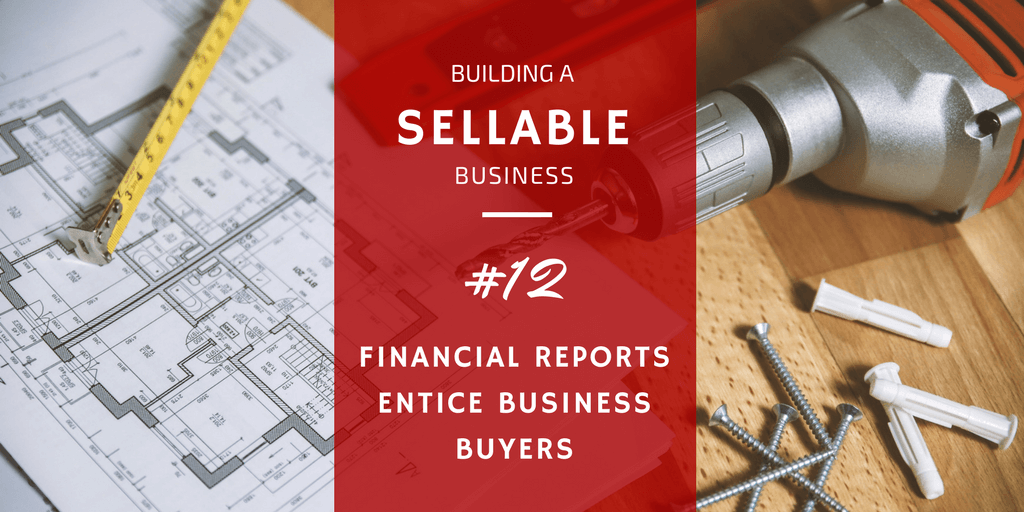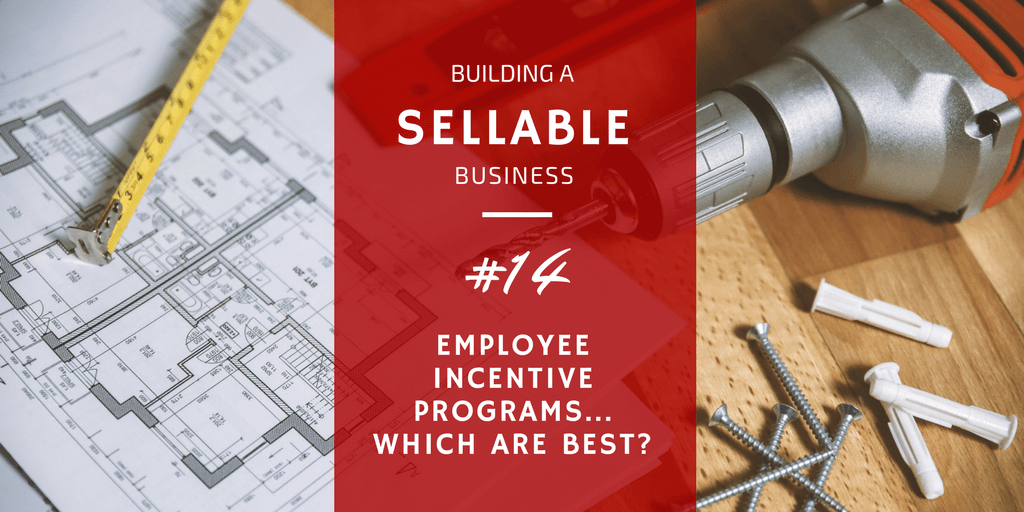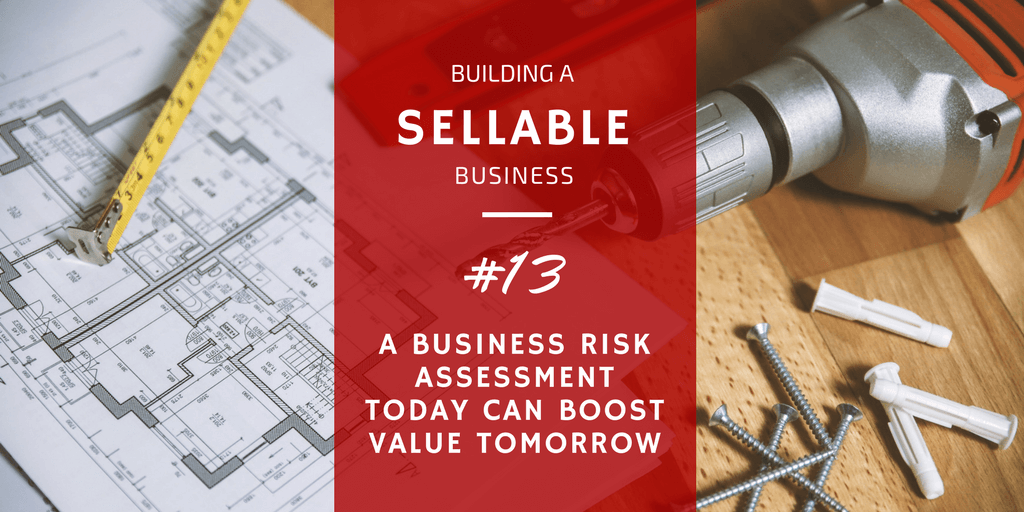
Clear Financial Reports Entice Business Buyers – Post #12
December 21, 2017
Employee Incentive Programs – Which Best Fit Your Business? – Post #14
January 4, 2018A Business Risk Assessment Today Can Boost Value Tomorrow – Post #13

A wise person once told me, “Somebody else’s experience is a far better teacher than our own.” I wish I had listened to that advice. If I had understood the vital role of a business risk assessment in the purchase of a business, I might have avoided making the single biggest mistake of my business career.
Podcast Time Index for “Business Risk Assessment – Listen to Your Good Angel”
00:41 – Listen to Your Good Angel – Don’t do it!
02:00 – A Cautionary Tale
04:18 – Risk Management
04:53 – What is Risk?
08:19 – The Legal Aspect
08:51 – Why does it matter?
09:55 – How to Identify Risk
10:39 – Where to start
13:43 – Risk Assessment
16:48 – Know the Law
20:05 – Risk Management is vital
An Expensive Education
Many years ago, I had the opportunity to purchase a business. It appeared, by all standards, to be a very good opportunity for me. So like any prudent business person, I began conducting due diligence. I looked at everything in the company. From interviewing employees and customers to looking at the financial statements I talked about in Episode #12, I went through this business with a fine-tooth comb. And I didn’t even stop there. I sought counsel from attorneys, CPAs, and other professional advisers.
While doing a risk assessment of the business, I can remember asking myself, “Do I really need to buy this business? Should I really add this much stress to my life?” Like an angel sitting on my shoulder, my conscience warned me over and over against purchasing the company. I began to focus on the pros of buying the business. To my detriment, I ignored the red flags I saw in the list of cons.
To make a long story short, I purchased the company. What had seemed like minor discrepancies in the business assessment at the beginning, ended up becoming MAJOR problems. And those problems caused lots of harm, lots of grief, and lots of heartache. Ultimately, I wish I had listened to my gut and the risks that appeared in the assessment. If I had, I wouldn’t have bought the company. The excitement for the potential of making more money, though, got the better of me, and it cost me years of my business life.
Not long after making the decision to purchase, I found myself entrenched in a legal battle that cost me $300,000 and seven years of my life. I earned a doctorate degree in risk management from the School of Hard Knocks, and that’s a tuition I won’t soon forget. Holy Batman. What an expensive education.
Types of Business Risk
In our businesses, we business owners face risks in different shapes and sizes. Depending on our industry, harm could befall us in unusual ways. For instance, we could face environmental or weather-related risks. National or global-economic crashes could take the legs out from under our businesses. Changes in employment, political parties, market competition, or the like could also pose risks to our businesses.
No matter what business we’re in, each of us will face risks. And we’ll deal with the risks. More often than not, we’ll deal with the legal implications or ramifications of the risks. Some of us must comply with OSHA, HIPAA, or the Patriot Act. What about the Equal Opportunity Act or the Labor Standard Act? Regardless, all business owners have to deal with national or state laws that create risks in our companies.
Before we can manage risk, we must identify the risks and comply with the laws that govern them. You know, the biggest mistake I ever made was not looking at all of the potential risks involved with buying a company, and the risk I ignored had to do with legal risks. I missed it clear as could be. My advisers didn’t tell me about it, and I was blinded by ambition. Most of us see the upside but rarely do we see the full potential of the devastation of the downside. We must be aware of all of the various types of potential risks, and we must follow the laws that govern the risks. As I heard my attorney say over and over, “Ignorance is not an excuse not to obey the law.” We definitely have our hands full.
Monitor the Risks
So what are we business owners to do with these risks? Whether you’re preparing your business for sale currently or in the future, you should sit down every year and do a new risk assessment on your company. The reason I recommend looking yearly is because risks change. Your state may have issued new employment laws, or a competitor may have opened his doors since your last risk assessment. What if interest rates have changed or new tax laws been issued? With so many different types of risks, where do you start?
6 Steps to a Business Risk Assessment
- Consult outside counsel – Start with a good insurance agent who works to protect you from risk on a daily basis. Then, talk to your attorney, your CPA, and your CERTIFIED FINANCIAL PLANNER™ to identify and forecast potential risks.
- Seek internal advice – Rally your family and your team, and perform a S.W.O.T. analysis. Identify Strengths, look for Weaknesses, Find Opportunities, and Guard against Threats.
- Weigh probability – Rank your identified risks in order of how likely they are to occur. Start with the most likely. Finish with the least likely.
- Predict harm – If your greatest risk is not harmful to your company, don’t devote countless time and energy to it. Instead, manage the risks most likely to cause you harm.
- Address the risk – Don’t ignore any of the risks. Use your rankings and your predictions to decide which ones need immediate attention, but don’t turn a blind eye to any risks.
- Monitor for changes – Shoot for yearly risk reviews to keep up with legal, economic, or political changes.
How Does this Management of Risk Affect Sellability?
So how do a risk assessment and resulting management apply to our journey to sell our business? It’s not rocket science. Any potential buyer will look closely at our risk management process to see if we understand the risks in our business and to see if we’re prepared to handle the effects of those risks. Buyers will want to look at our risk management track record to see if we’ve prepared for and battled the risks successfully.
Put yourself in a buyer’s perspective. The last thing your buyers want to do is come and purchase a business with holes in its risk management shield. If a buyer realizes you haven’t paid your workers’ compensation insurance or your employee payroll taxes, he might walk away from your company. We business owners haven’t spent all of this time and effort growing our business in hopes of selling it for millions only to leave holes in its foundation. If we ignore parts of our business’s risk assessment, we will most likely lose a buyer interest in the future.
So friends, now is the time to take a risk assessment of your business. Prepare yourself. Prepare your company. Sell it for millions!
Like I always say, life is hard. Business can be complicated. Money doesn’t have to be. Let’s continue to make our lives, at least, financially simple.




